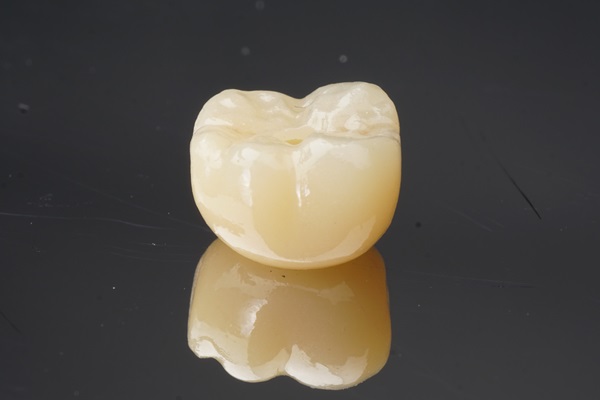Caring for Your Dental Crown: Tips for Long-Term Maintenance

A dental crown can protect the remaining dental structure. It can restore and protect the natural tooth. Maintaining this restoration can help keep your smile intact for a long time. Here are some care tips for your new dental crown.
Choose the right foods
Specific foods can damage a dental crown. Some raw fruits and vegetables are firm and hard. Cut them into smaller pieces, making them manageable to eat. Doing so can reduce stress on the crown.
Refrain from eating sticky and hard foods. Chewing gum or taffy can dislodge this dental restoration. Popcorn kernels, candies, or ice can damage it. Limit acidic drinks and foods. Acid erodes the enamel of natural teeth, which can deteriorate the teeth underneath the cap. If consuming these types of food is unavoidable, rinse the mouth with water right away.
Maintain good oral care
Maintaining a dental crown involves practicing good oral care every day. Brush at least twice daily with fluoride toothpaste and a soft-bristled toothbrush. Clean the area around the crown and the gumline. Floss daily to remove food particles and plaque from between the cap and tooth. Gargle with an antibacterial mouthwash to prevent infections and cavities.
See the general dentist if there is an issue
Any discomfort with a dental crown needs the attention of a dental care provider. Persistent pain or sensitivity around the cap may be a symptom of infection or an ill-fitting restoration. A dislodged crown will need a dental visit right away. Refrain from re-attaching the cap at home. Changes in crown texture or color may be a sign of wear or damage. The dentist must assess it to provide the right solution.
Protect the dental crown
Shield the restoration from trauma during outdoor activities or contact sports. The dentist can provide a custom-fit mouthguard to help cushion any form of impact. It can even prevent damage to it and its surrounding natural teeth. The custom-made kind may cost more than the over-the-counter variety, but it can protect the mouth better. For individuals with bruxism, the dentist can provide a custom-fit nightguard.
Keep regular dental appointments
Routine dental visits are necessary to keep a dental crown in top shape for a long time. Each visit will involve an assessment of the cap and the underlying tooth. The dentist will also inspect the condition of the surrounding teeth. Addressing early stages of cavities, dental damage, or crown damage will be part of the visits.
The patient will also have professional dental cleanings during these appointments. This standard treatment can help keep the underlying tooth healthy. By preventing cavities and gum disease, the dental crown can last long. These cleanings can also help keep the teeth and crown look bright all the time. The dentist will also provide helpful tips on how to keep the mouth problem-free.
Long-term maintenance of your dental crown can keep your smile last for years
Keeping your smile complete and functional may need the help of a dental restoration. The most common to consider is the dental crown. You can keep your cap intact by following the mentioned long-term maintenance tips. Working with your general dentist can make your crown journey a smooth one.
Request an appointment here: https://www.jameslakedds.com or call James Lake, DDS at (760) 853-2144 for an appointment in our Yucca Valley office.
Check out what others are saying about our dental services on Yelp: Dental Crowns and Dental Bridges in Yucca Valley, CA.
Related Posts
Choosing a kid friendly dentist is critical for your child’s dental health. The right dentist understands a young patient’s needs and their development. As a parent, you need to be aware of those big moments in a child’s oral wellness. This will help you keep on top of good oral hygiene at every stage of…
If you are looking to replace several teeth due to decay, infections, disease, injury, or other loss, then you may be looking for your options for a dental implant. The good news is that these procedures have been done frequently, and therefore, a lot of knowledge is known about the process and what to expect.…
While orthodontics is a dental specialty, many general dentists offer orthodontic treatment alongside traditional dental services. This is due to the fact that the appearance and health of one's teeth are connected. A general dentist who offers orthodontic services will have the necessary training and education to address minor to moderate orthodontic treatment, allowing patients…
Although wisdom tooth extraction is one of the most common procedures practiced in oral medicine, many are unfamiliar with why it may be needed or recommended. Each individual has varying needs, which means the reasoning for a wisdom tooth extraction may be different for everyone. However, there are a few common scenarios in which a…
